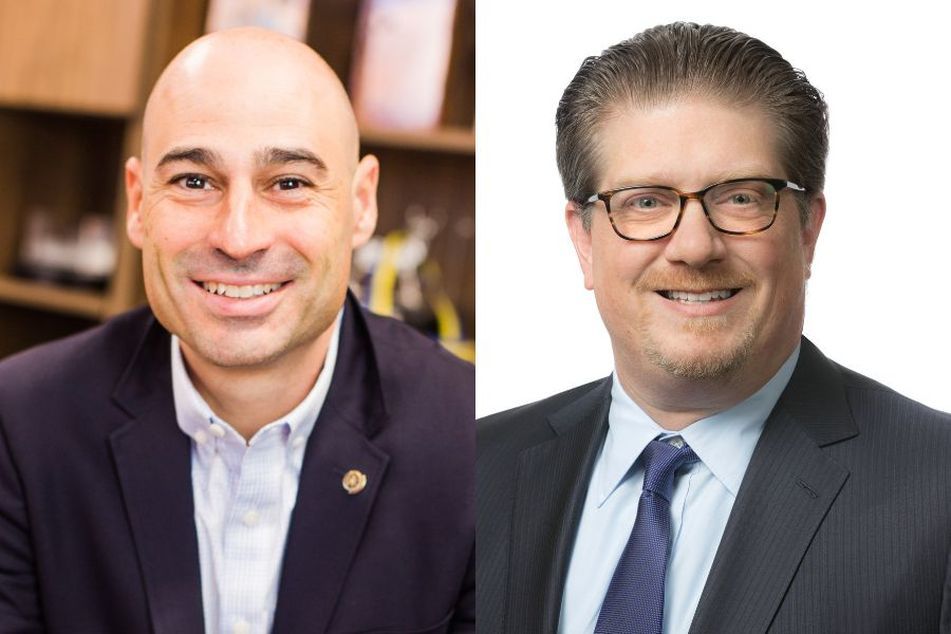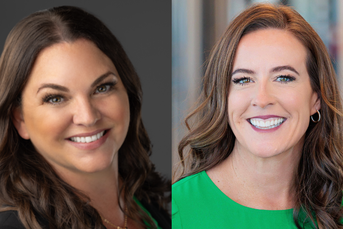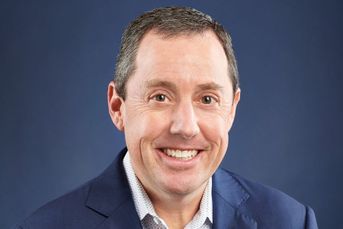Millennials want advice now but industry ‘unprepared’
 Scott Danner, of Freedom Street, and Kris Carroll, of Wealth Enhancement Group.
Scott Danner, of Freedom Street, and Kris Carroll, of Wealth Enhancement Group.
Firms must have a clear idea of how to attract and retain G2 advisors as record CFP exam numbers offer good news for the future.
Fear not, financial advisors. There is seemingly good news ahead for the future of the financial advisory industry.
Recent results from the CFP Board’s certification exam found 3,683 candidates took part in the March 2024 CFP certification exam, the CFP Board said last month in a press release, breaking last March’s record of 3,527 exam-takers.
The CFP Board projects that the total number of active CFP professionals will soon surpass 100,000 certificants in the U.S., representing about one-third of retail financial advisors. Additionally, 68 percent of March candidates were under 40 years old, with 37 percent under age 30.
Liz Miller, founder and president of Summit Place Financial and CFP Board Chair-elect, says the CFP Board is looking at ways to help advisors understand what NextGen CFP professionals are looking for in a professional experience, in addition to what they’re already doing to build their career.
“One of the best resources we have is the CFP career guide that shows the experiences at each step in a career,” Miller explains. “A lot of our young CFP professionals are looking at that guide as a checklist and they want to make sure they are getting each of those experiences.”
While this is certainly encouraging news for the advisory space, several advisors say the industry still faces its challenges to attract and retain advisors. Scott Danner, CEO of Freedom Street at Steward Partners, says there’s “such an age gap” between the older, successful advisors and the ones who are up and comers.
“Millennials are showing that they want advisors, and they want advice now, and it hasn’t always been this way,” Danner says. “As they turn into their early 40s, this is a major need that I think we’re unprepared for in this industry.”
Danner added there’s an additional reason advisors should be focusing on attracting and retaining G2 advisors: technology.
“AI and all of the tools in the technology realm are rapidly enhancing the client experience … The reality is the youth are much more apt to adjust, to build out and to help clients.”
Andrew Herzog, certified financial planner at The Watchman Group, thinks the reason firms haven’t been able to keep up with attracting new advisors is because they’re too wrapped up in keeping their clients and preserving their wealth.
“You need to start looking for somebody else to come on board who’s going to be around for the next few decades,” he said. “People who need work, that want work, and who don’t plan to retire for decades. You don’t need to hire another advisor or assistant who’s in their 50s and 60s – they don’t want to work forever, but younger people do.”
Kris Carroll, managing director at Wealth Enhancement Group, thinks advisors aren’t being proactive because it’s still a young industry that’s being “figured out”.
“They don’t think about, what about 10 years from now? What about 20 years from now? They’re not doing long-term planning; they’re doing short term planning,” he said.
Carroll noted there are some strategies that are working to attract NextGen advisors but added “there still needs to be development.” He thinks advisors who simply sit and participate in client meetings can already learn so much about the business, just “by really seeing it.”
Herzog highlighted when it comes to the differences of current advisors and the next generation, the NextGen will likely be “a different breed” altogether, given that they’re open to experiment with alternative investments that are in the market.
“They’re also going to have a different perspective,” he said. “The younger advisors are going to be more tech savvy and they could be the ones that are more tempted to jump into crypto and begin to try to get their investors to invest more in that asset class over the years. It’ll be a whole different kind of advisor.”
This is why he pays close attention to Millennial and Gen Z sites, like Reddit, YouTube and social media platforms. By staying informed about current trends and investment products, he can agree or correct the narrative that clients are being told.
Advisors could also consider marketing on these kinds of platforms Danner says, as marketing can be “very valuable” when it comes to recruiting and bringing in the younger talent.
“Are you doing videos? Are you out there? It’s so simple, but these are some of the things that stand out to someone who’s young and to make them feel like they’re a part of something,” he said.
Ultimately, having a succession plan is of the “utmost importance”, Danner says. The key is to identify who the successors are and to have a real strategy around it. When advisors can’t execute their strategy, they should consider bringing in an outside company or strategic partners.
“You are constantly preparing your business for the next chapter so if anything happens to you, you are always protected, and your clients will have a continuous relationship and experience into the future. I think that’s of the utmost importance today.”
Jack Heintzelman agrees.
“It promotes that you’re focusing on the family. Not just the client, but also their children and their grandchildren,” the financial planner at Boston Wealth said. “If you can implement processes and strategies for the next generation of advisors to connect with the next generation of clients, it’ll help both the client and your firm continue into future generations.”
Learn more about reprints and licensing for this article.








